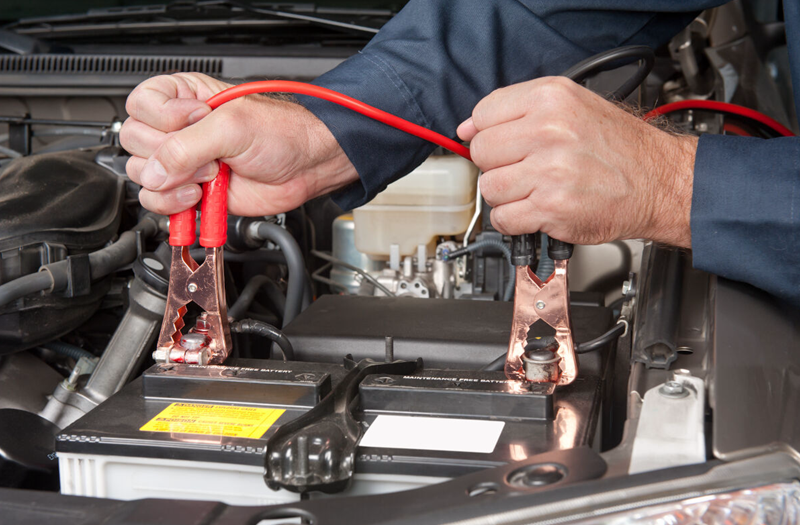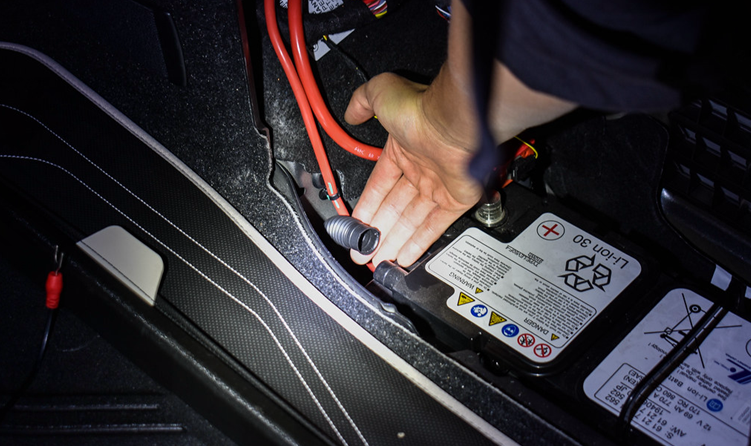Deep Cycle vs Starting Battery: What’s the Difference?
Batteries are an essential component of many devices and systems we rely on every day. From powering our vehicles to providing backup energy for our homes, batteries play a crucial role in our lives. When it comes to batteries, two common types that often get confused are deep cycle batteries and starting batteries. While both serve different purposes, understanding the difference between the two can help you choose the right battery for your specific needs.
Starting batteries, also known as cranking batteries, are primarily designed to provide a burst of power to start an engine. They are commonly used in vehicles like cars, motorcycles, and boats. Starting batteries deliver a large amount of current for a short period, typically a few seconds, to engage the starter motor and turn the engine over. Once the engine is running, the alternator takes over and recharges the battery.
Deep cycle batteries, on the other hand, are designed to provide a steady and continuous flow of power over an extended period. They are commonly used in applications that require constant power, such as golf carts, electric scooters, marine trolling motors, and RVs. Deep cycle batteries are built with thicker plates and are designed to withstand multiple discharge and recharge cycles. Unlike starting batteries, deep cycle batteries can be discharged up to 80% without causing significant damage to their lifespan.
The main difference between deep cycle and starting batteries lies in their construction and the way they deliver power. Starting batteries have thinner lead plates, which allow for a higher surface area and lower internal resistance. This design enables the battery to deliver a high current for a short period, making it ideal for starting engines. Deep cycle batteries, on the other hand, have thicker lead plates with a higher density of active material, enabling them to provide a steady current over a longer period.
Another important factor to consider is the battery’s capacity. Starting batteries are designed to deliver a high burst of power but have a lower overall capacity compared to deep cycle batteries. Deep cycle batteries, on the other hand, have a larger capacity and can consistently deliver power for a more extended period.

It is crucial to choose the right type of battery for your specific application. Using a starting battery in a deep cycle application can result in reduced battery life and poor performance. Deep cycle batteries, on the other hand, may not provide enough power to start an engine quickly. Understanding the requirements of your device or system is essential to ensure you select the appropriate battery type.
In conclusion, deep cycle batteries and starting batteries serve different purposes and have distinct characteristics. Starting batteries are designed to provide a high burst of power for starting engines, while deep cycle batteries are built to deliver a steady flow of power over a more extended period. Understanding the differences between the two will help you make an informed decision when choosing the right battery for your specific needs. So, whether you need to start an engine or power a system consistently, selecting the appropriate battery type is crucial for optimal performance and longevity.
-
 Inergy is a necessity that drives our daily lives. Whether it is powering our smartphones, laptops, or electric vehicles, reliable and efficient energy sources are crucial. The development of lithium-ion batteries has revolutionized our energy storage capabilities, and among them, the 100Ah LiFePO4 lithium battery has emerged as the ultimate energy solution. The 100Ah LiFePO4 lithium battery is a...Citeşte mai mult
Inergy is a necessity that drives our daily lives. Whether it is powering our smartphones, laptops, or electric vehicles, reliable and efficient energy sources are crucial. The development of lithium-ion batteries has revolutionized our energy storage capabilities, and among them, the 100Ah LiFePO4 lithium battery has emerged as the ultimate energy solution. The 100Ah LiFePO4 lithium battery is a...Citeşte mai mult -
 Introduction: In recent years, there has been a rapid advancement in the field of robotics, particularly in the development of smart mobile robots. These robots are becoming increasingly prevalent in various industries, from manufacturing and logistics to healthcare and agriculture. One of the key factors that contribute to the efficiency and performance of these robots is the power source they...Citeşte mai mult
Introduction: In recent years, there has been a rapid advancement in the field of robotics, particularly in the development of smart mobile robots. These robots are becoming increasingly prevalent in various industries, from manufacturing and logistics to healthcare and agriculture. One of the key factors that contribute to the efficiency and performance of these robots is the power source they...Citeşte mai mult -
 When it comes to boating, having a reliable source of power is essential. Whether you're out on the open water or enjoying a day at the lake, you need batteries that can keep your boat running smoothly. That's where marine batteries come in. These specialized batteries are designed to provide the power your boat needs while withstanding the unique challenges...Citeşte mai mult
When it comes to boating, having a reliable source of power is essential. Whether you're out on the open water or enjoying a day at the lake, you need batteries that can keep your boat running smoothly. That's where marine batteries come in. These specialized batteries are designed to provide the power your boat needs while withstanding the unique challenges...Citeşte mai mult -
 Introduction: Communication plays a vital role in our daily lives. We rely heavily on our smartphones, tablets, and other devices to stay connected with our loved ones and to access information. Behind the scenes, communication base stations serve as the backbone of our connectivity, enabling seamless network coverage. Traditionally, these base stations have been powered by diesel generators, which...Citeşte mai mult
Introduction: Communication plays a vital role in our daily lives. We rely heavily on our smartphones, tablets, and other devices to stay connected with our loved ones and to access information. Behind the scenes, communication base stations serve as the backbone of our connectivity, enabling seamless network coverage. Traditionally, these base stations have been powered by diesel generators, which...Citeşte mai mult -
 Introduction In the world of automotive engineering, battery technology has come a long way. With the rise of electric and hybrid vehicles, the need for high-performance, lightweight battery systems has never been greater. Lithium starter batteries are becoming increasingly popular among performance enthusiasts and professional racers due to their unparalleled power-to-weight ratio and exceptional durability. In this article, we will...Citeşte mai mult
Introduction In the world of automotive engineering, battery technology has come a long way. With the rise of electric and hybrid vehicles, the need for high-performance, lightweight battery systems has never been greater. Lithium starter batteries are becoming increasingly popular among performance enthusiasts and professional racers due to their unparalleled power-to-weight ratio and exceptional durability. In this article, we will...Citeşte mai mult -
 do you know? Industrial batteries are no longer the old-fashioned thing they used to be. They are undergoing a major innovation! This innovation makes power flow like a rolling river. Industrial automation, efficiency soars Imagine that robots and production lines in factories no longer “break down” due to battery problems. New industrial batteries have sufficient energy and good endurance, allowing...Citeşte mai mult
do you know? Industrial batteries are no longer the old-fashioned thing they used to be. They are undergoing a major innovation! This innovation makes power flow like a rolling river. Industrial automation, efficiency soars Imagine that robots and production lines in factories no longer “break down” due to battery problems. New industrial batteries have sufficient energy and good endurance, allowing...Citeşte mai mult -
 Lithium Iron Phosphate (LiFePO4) batteries are a type of rechargeable battery that are known for their high energy density and long cycle life. They are commonly used in electric vehicles, energy storage systems and portable devices. One important factor that affects the performance of LiFePO4 batteries is temperature. Like all batteries, LiFePO4 batteries have a temperature range in which...Citeşte mai mult
Lithium Iron Phosphate (LiFePO4) batteries are a type of rechargeable battery that are known for their high energy density and long cycle life. They are commonly used in electric vehicles, energy storage systems and portable devices. One important factor that affects the performance of LiFePO4 batteries is temperature. Like all batteries, LiFePO4 batteries have a temperature range in which...Citeşte mai mult

